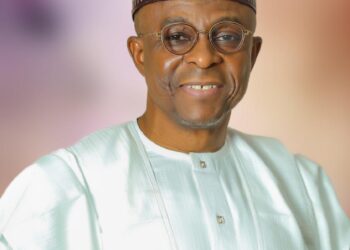Prior to the emergence of the Comrade Onikolease Irabor-led national executive council of the Maritime Workers Union of Nigeria, the union went through hell in the hands of the then-leadership of Comrade Uzoije Ukaumunna who was forced out of office through the instrumentality of the Federal Government.
The removal of the Ukaumunna executives was reportedly based on petitions from users and providers of port services to the effect that the leadership of Maritime Workers union of Nigeria has become a ‘terrorist organisation’; intimidating shipping companies, harassing the management of Nigerian Ports Authourity( which was at that time, the master stevedore) and other groups.
It was at that time that akugbe became legalized in which case union leaders were directly involved in placement of dockworkers at the various terminals. For doing this, the leadership (or more precisely) the president general puts less men on the job, collected wages for the men, paid them what he felt was okay for them and pocketed the rest.
At the peak of Comrade Ukaumunna’s tenure, he (or is it the union?) was allowed by the then managing director of NPA, Engr. Wali S. Ahmed to operate a shuttle bus system, moving port users form the Apapa port main gate to the terminal up to the ‘Bull Nose’ end of the port.
There were allegations of ‘hijack’ of incoming vessels pending when their agents would pay a ransom. The union leaders were accused of all manners of illegalities. The then-president general had his own ‘army of bodyguards’ which dealt with perceived enemies.
These unfriendly practices which made the union president general ably buoyed by dockworkers to become a god eventually got to the ears of then –federal government which moved against them and constituted a caretaker committee of which the publisher of this newspaper was a member.
The rest is history as the process led to the emergence of the now-outgoing leadership of the union under the leadership of Comrade Onikolease Irabor in March 2001.
It is imperative to appraise the eight – year tenure of Comrade Irabor vis – a – vis the pre 2001 era. In doing this, we are very conscious of the fact that there it is difficult to appraise the union between 2001 and 2009.
The Maritime Workers Union of Nigeria is perceived differently by different people and that perception will depend on which side of the divide that person is situated and what his or her interests are.
But, we chose to observe that there has been relative peace in the union since the out-going executives took came on board. The importance of industrial peace in the strategic maritime sector can not be over stated. Events of the pre-2001 era were so chaotic that one can but commend the doggedness of the then- minister of transportation chief Ojo Maduekwe who threw parochialism to the winds and insisted that the then leadership of Comrade Ukaumunna must vacate office on the grounds that it was becoming a security threat and that it has overstayed the mandatory tenure as prescribed by the constitution of the union.
Closely following the minister is the bold efforts of the then-executive chairman, Joint Dock Labour Industrial Council, Alhaji Tijjani Ramallan who in spite of the obvious violent disposition of the dockworkers was able to stabilize the ship and facilitated the process which led to the conduct of elections into the union’s executive council.
All things being equal, by the time you are reading this editorial, Comrade Irabor would have ceased to be the president general of the Maritime Workers Union of Nigeria, but he certainly would be remembered for managing the union such that there was no violence during the highly volatile period of port concession. In other climes, there would have been serious unrests.
No matter what anyone says, the union has been transformed from being a ‘terror’ to a recognized and respected member of the shipping community whose opinions are always sought by stakeholders.
Arguably, the darkest moment in the eight year journey was the inadvertent mass job loss at the Nigerian Ports Authourity as a result of concession, but the question is: Could the union have resisted concession, especially on the face of the fact that port concession was an integral part of the holistic government policy of engendering a private sector-driven economy.
It is on the strength of the relative peace and change of public perception of the union which the outgoing leadership has been able to achieve that we condemn (in strong words) the recent mayhem which was unleashed on the union’s headquarters.
To reenact events of the pre-2001 era by vandalizing the union’s secretariat and inflicting bodily harm on some leaders and employees of the union by any group is barbaric and unacceptable.
















Discussion about this post